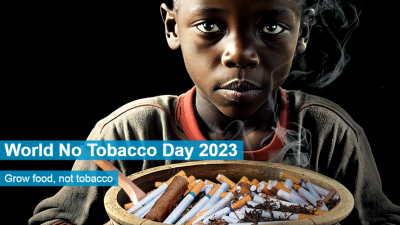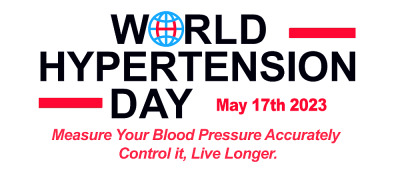By Capt Dr Wong Ang Peng (Rtd)
Malaysian Alliance for Effective COVID Control (MAECC), an association of six medical and allied health associations plus civil society groups has on June 21 issued a media statement urging our government to allow Ivermectin under emergency use listing for prophylaxis and early treatment of COVID-19.
In a MySinChew opinion piece on June 22, Prof Dr Moy Foong Ming had argued that studies on Ivermectin had not produced conclusive results. She based her arguments on the WHO and US FDA’s recommendations, the concept of evidence-based medicine (EBM), and cited two studies.
Dr Moy’s critique on Ivermectin had mentioned MEACC’s contention based on evidence derived from poorly designed randomized controlled trials (RCTs).
Health ministries of nations and individual health experts arguing against Ivermectin’s use based on the WHO and US FDA’s recommendation must ask for the scientific basis.
There is no forthright scientific reason made known other than merely stating the evidence is inconclusive, thus, lacking transparency. The US FDA and the WHO are not immune to big corporate lobby and influence.
It must be pointed out that for a drug or vaccine to be approved under emergency use authorization (EUA), there must be no available medication for the treatment of the disease before and after the approval. If a medication is available after the approval, the EUA would be terminated.
The WHO’s refusal to recommend Ivermectin, the broad spectrum anti-parasitic drug against COVID-19 is puzzling, after all, the drug has been designated as essential and safe for humans. Unitaid, a body under the WHO, had sponsored an international Ivermectin study led by Dr Andrew Hill of the Liverpool University.
The study, “Systematic review and meta-analysis of randomized trials of Ivermectin to treat SARS-C0V-2 infection”, by Hill et al (2021) is of high-quality. The results of the study are:
1. In the meta-analysis of 18 RCTs of 2,282 patients, Ivermectin was associated with reduced inflammatory markers (C-Reactive Protein, d-dimer and ferritin) and faster viral clearance by PCR. Viral clearance was treatment dose- and duration-dependent.
2. In six randomized trials of moderate or severe infection, there was a 75% reduction in mortality (Relative Risk=0.25 [95%CI 0.12-0.52]; p=0.0002); 14/650 (2.1%) deaths on Ivermectin; 57/597 (9.5%) deaths in controls).
3. There was favorable clinical recovery and reduced hospitalization with Ivermectin.
The conclusion of the study stated, “Despite the encouraging trend this existing database demonstrates, it is not yet a sufficiently robust evidence to justify the use of regulatory approval of Ivermectin”. This is in spite of the of the clear and convincing findings of the study.
Those familiar with writing scientific papers will find discrepancy in the result and conclusion parts of the paper. How is it that 75% mortality reduction, faster time to recovery, and faster viral clearance could be concluded as “insufficient evidence”?
A written revelation by Dr Tess Lawrie, whom Dr Andrew Hill had confided, had stated that the conclusion part of the study was not originally that of the authors, but was rewritten by the study sponsor.
Dr Moy correctly mentioned EBM as a necessary guide for physicians’ clinical decisions. The EBM has a hierarchy of evidence whereby systematic review and meta-analysis of RCTs occupies the top in the hierarchy pyramid. However, when evidence from the systematic review and meta-analysis is not available, the next best evidence informs, i.e., the RCTs, and down the pyramid to cohort studies, case control studies, and finally case series and case reports.
At the height of the COVID-19 pandemic in mid 2020, the whole world was frantically seeking a cure. EBM was of no guide to physicians then. Today, Ivermectin, supported by 60 clinical studies (ivmmeta.com), has been found effective. Casting aspersion and preventing its use is the modus operandi of corporate interest.
Hydroxychloroquine did provide some evidence in mid 2020 and had attracted world attention. Two badly designed short-duration studies used flawed data from analytics company, Surgispher, were published. One study showed COVID-19 patients treated with the drug did not experience lower risk of death compared to patients receiving other treatments. The other study showed cancer patients with COVID-19 receiving the hydroxychloroquine and azithromycin had a risk of death 2.89 times greater within 30 days than those who did not receive the drug.
The flawed data used in the two papers were later discovered, compelling the New England Journal of Medicine and The Lancet to retract the two studies. But the damage was done to hydroxychloroquine, and the way paved for vaccines to be approved through EUA.
Health professionals who continue to disparage hydroxychloroquine are ignorant of the sinister disinformation camouflaged as science. The issue of hydroxychloroquine, although not the gist in this discussion, is mentioned to support the argument of the apparent role of corporate interest in influencing important decisions at the highest level.
Ivermectin could have met the same fate as hydroxychloroquine had there not been brave individual doctors conducting and self-funding their own small-scaled studies. These doctors, in several countries, put the interest of their patients first. Their altruistic spirit and the results of the Ivermectin studies should be recognized and not ridiculed the way some health officials and health professionals do today.
Dr Moy criticized MAECC for using low quality RCTs or systematic reviews to put forward the case of Ivermectin’s prophylactic and early treatment use. We agree that several of the studies, including the earlier RCTs, conducted on Ivermectin were heterogeneous in subjects, intervening agents, outcome measures, and had confounding issues that led to reduced certainty of evidence.
However, there are RCTs that were well conducted. Pooled results of these studies, after excluding studies of possible bias, as conducted by Lawrie et al (2021) and Bryant et al (2021) showed compelling results of Ivermectin efficacies. The selected RCTs in both the Lawrie and Bryant studies overlapped with those selected by Hill and colleagues.
Merely looking at minor details like the small sample size, width of confidence intervals, trials selection, unreviewed studies, not in clinical trial register, preprint studies, undeclared funding source, etc, to find faults without also looking at the overall positive results is not being objective.
A critique with objectivity should have first acknowledged the high probability values (p-value) in almost all the findings that led to the conclusion of large reduction in COVID-19 deaths, shortened hospital stay, reduced viral load, and using Ivermectin early reduced numbers progressing to severe disease.
Any study that could show prevention of deaths is of extremely high value, irrespective of whether the trial has low certainty value. Failing to realize this aspect is inexcusable. It shows one’s bias and brings into question one’s objectivity in being a critic.
The fact remains that the results are similar in all the meta-analyses of Lawrie, Bryant and Hill, i.e., for Ivermectin against COVID-19, there is statistical significance in mortality reduction and efficacy in therapeutic use. Besides, Dr Tess Lawrie is a consultant to the WHO for the synthesis of clinical studies and RCTs. Her published papers must be taken seriously and not ridiculed. Critics of Ivermectin should also look at the website ivmmeta.com for real-time meta-analysis that to date has compiled 60 Ivermectin studies.
Dr Moy also cited the Lopez-Medina et al (2021) study, published in JAMA, to support her argument. The study concluded that the adults with mild COVID-19, a five-day course of Ivermectin, compared to placebo, did not significantly improve the time to resolution of symptoms. This study was designed to fail – the relatively small sample size, types of outcome measure, and the age group of subjects.
The small sample size (n = 397) is confirmed in the wide confidence intervals. Dr Moy was quick to point out the wide confidence intervals in the Bryant study but chose to ignore in the Lopez-Medina study.
Between the two groups in the 21-day period in days to symptoms resolution, the Ivermectin group was ahead by 2 days. Also, there was less adverse events reported in the Ivermectin group compared to the control group. To the medical doctors, these have clinical significance for their patients, although not so for an epidemiologist.
Dr Moy was keen to observe the non-disclosure of funding in her critique of the Ivermectin RCTs. She chose not to notice both the lead authors of the Lopez-Medina study received grants and fees from two conglomerates that are also producing mRNA vaccines.
Ivermectin’s patent has lapsed since 1997. There is no corporate interest to gain from promoting the drug. The body of scientific evidence supporting Ivermectin for prophylaxis and therapeutic use is overwhelming. Population data from different regions of the world showing quick reduction in infective rate after mass distribution of Ivermectin supports those scientific evidence.
Disregarding and suppressing such information in the midst of societal clamoring for a cure is a criminal tragedy. Individual health professionals are urged not to fall prey and be used as proxies in this COVID psychological warfare waged against a safe and cheap drug conglomerates cannot compete.
We have only one objective, and that is to save lives.
Capt Dr Wong Ang Peng (Rtd), MAECC Secretariat
ADVERTISEMENT
ADVERTISEMENT








































